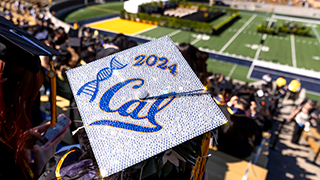 Assistant Professor of Biochemistry, Biophysics and Structural Biology James Nuñez was named a 2024 Pew Scholar in Biomedical Sciences.
Assistant Professor of Biochemistry, Biophysics and Structural Biology James Nuñez was named a 2024 Pew Scholar in Biomedical Sciences.
Department News
Below are articles from various sources about members of MCB and their research.
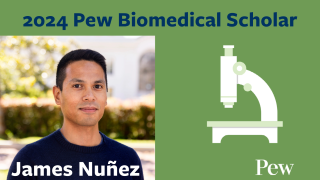

 Professor of Neurobiology Yang Dan has been awarded the 2024 Peter Seeburg Integrative Neuroscience Prize. This award is for for her ground-breaking research on elucidating the brain circuits that control behavior with a special emphasis on those neuronal networks that control sleep.
Professor of Neurobiology Yang Dan has been awarded the 2024 Peter Seeburg Integrative Neuroscience Prize. This award is for for her ground-breaking research on elucidating the brain circuits that control behavior with a special emphasis on those neuronal networks that control sleep.
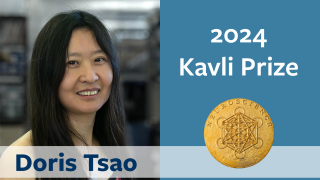
 Professor of Neurobiology Doris Tsao was awarded the 2024 Kavli Prize in the field of neuroscience by the Norwegian Academy of Science and Letters. Tsao shares the prestigious neuroscience prize with two other scientists for the discovery and study of specific areas in the brain that recognize faces.
Professor of Neurobiology Doris Tsao was awarded the 2024 Kavli Prize in the field of neuroscience by the Norwegian Academy of Science and Letters. Tsao shares the prestigious neuroscience prize with two other scientists for the discovery and study of specific areas in the brain that recognize faces.
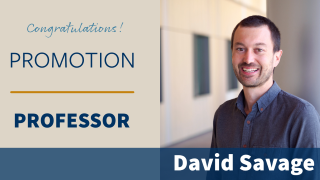
 Congratulations to David Savage on his promotion to MCB Professor of Biochemistry, Biophysics and Structural Biology!
Congratulations to David Savage on his promotion to MCB Professor of Biochemistry, Biophysics and Structural Biology!
The Savage laboratory researches how protein machinery – including both enzymes and compartmentalization - facilitates the biochemistry of the cell.
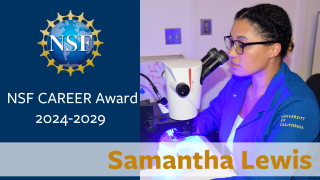
 Assistant Professor of Cell Biology, Development and Physiology Samantha Lewis recently received an NSF CAREER award for 2024-2029 for her research on Mitochondrial genome partitioning and quality control.
Assistant Professor of Cell Biology, Development and Physiology Samantha Lewis recently received an NSF CAREER award for 2024-2029 for her research on Mitochondrial genome partitioning and quality control.

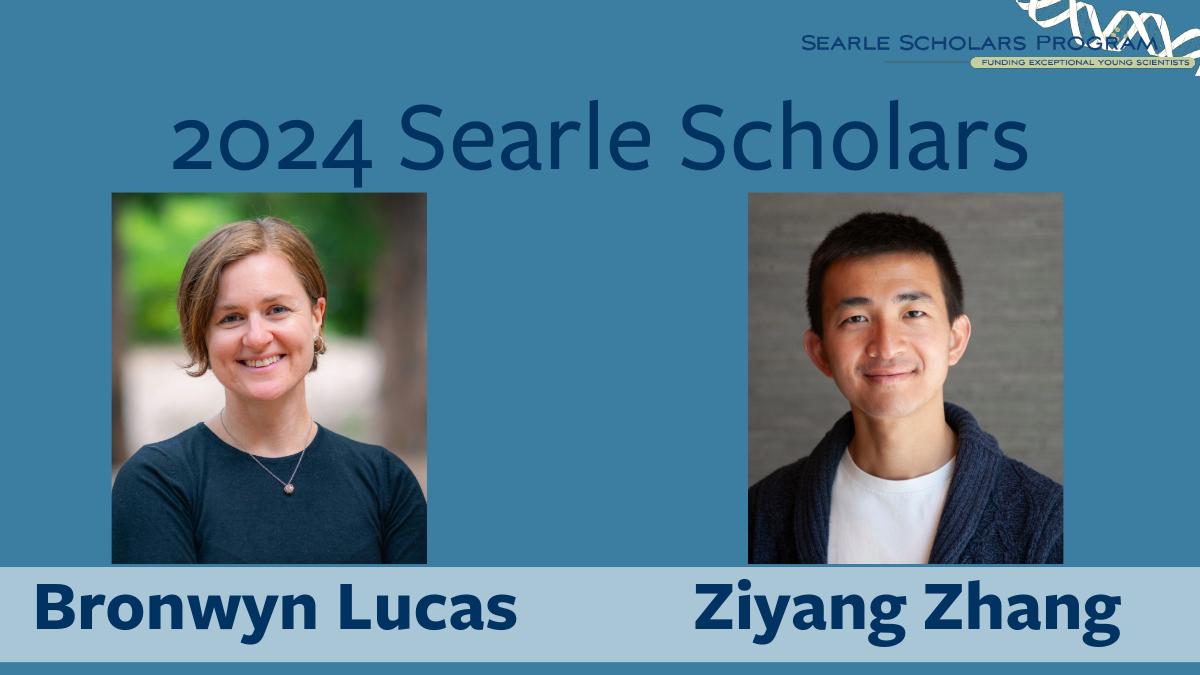 Assistant Professor of Biochemistry, Biophysics and Structural Biology Bronwyn Lucas and Assistant Professor (Affiliated) of Molecular Therapeutics Ziyang Zhang were among 15 outstanding early career scientists to be named 2024 Searle Scholars.
Assistant Professor of Biochemistry, Biophysics and Structural Biology Bronwyn Lucas and Assistant Professor (Affiliated) of Molecular Therapeutics Ziyang Zhang were among 15 outstanding early career scientists to be named 2024 Searle Scholars.

 We are excited to report that the MCB Class of 2024 senior gift campaign to raise funds for sponsored research stipends and travel grants has met their goal of $5,000! Thanks to the generosity of our community, more MCB students will be able to have transformative research experiences in the 2024-2025 academic year.
We are excited to report that the MCB Class of 2024 senior gift campaign to raise funds for sponsored research stipends and travel grants has met their goal of $5,000! Thanks to the generosity of our community, more MCB students will be able to have transformative research experiences in the 2024-2025 academic year.
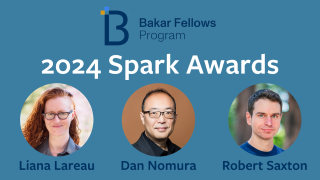
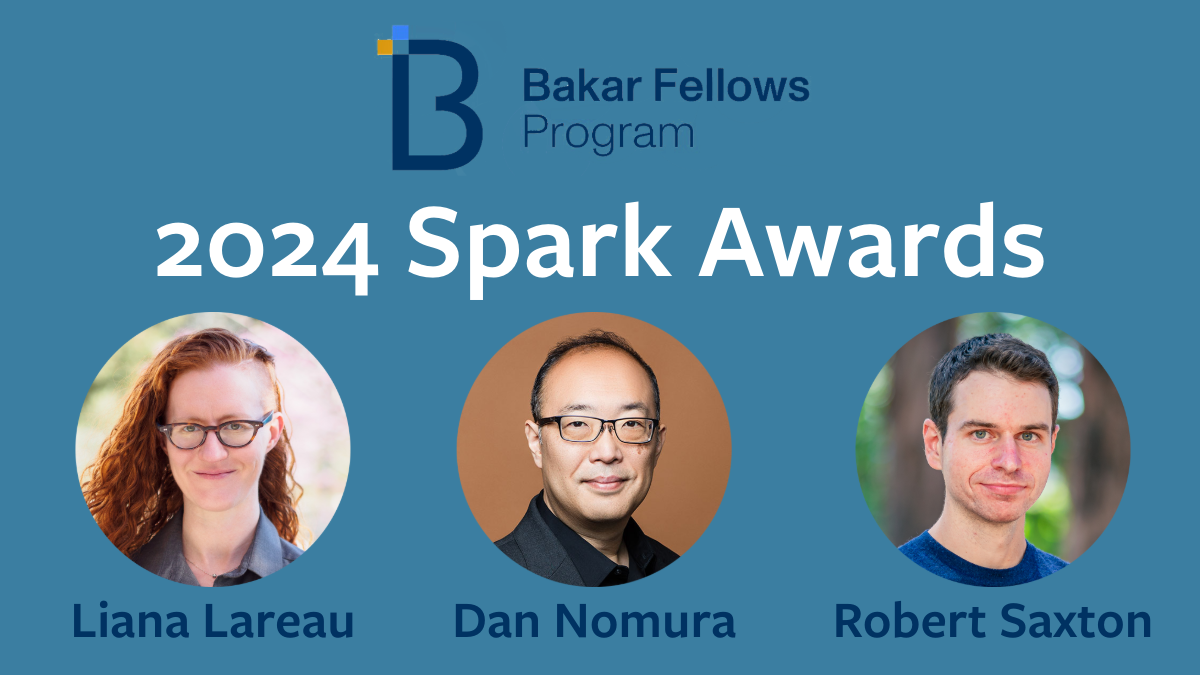 Congratulations to the 2024 Bakar Fellows Program Spark Award recipients: Liana Lareau, Assistant Professor (Affiliated) of Genetics, Genomics, Evolution, and Development; Dan Nomura, Professor of Molecular Therapeutics; and Robert Saxton
Congratulations to the 2024 Bakar Fellows Program Spark Award recipients: Liana Lareau, Assistant Professor (Affiliated) of Genetics, Genomics, Evolution, and Development; Dan Nomura, Professor of Molecular Therapeutics; and Robert Saxton
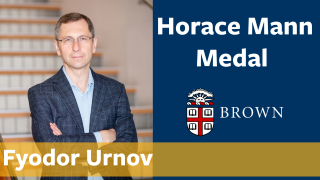
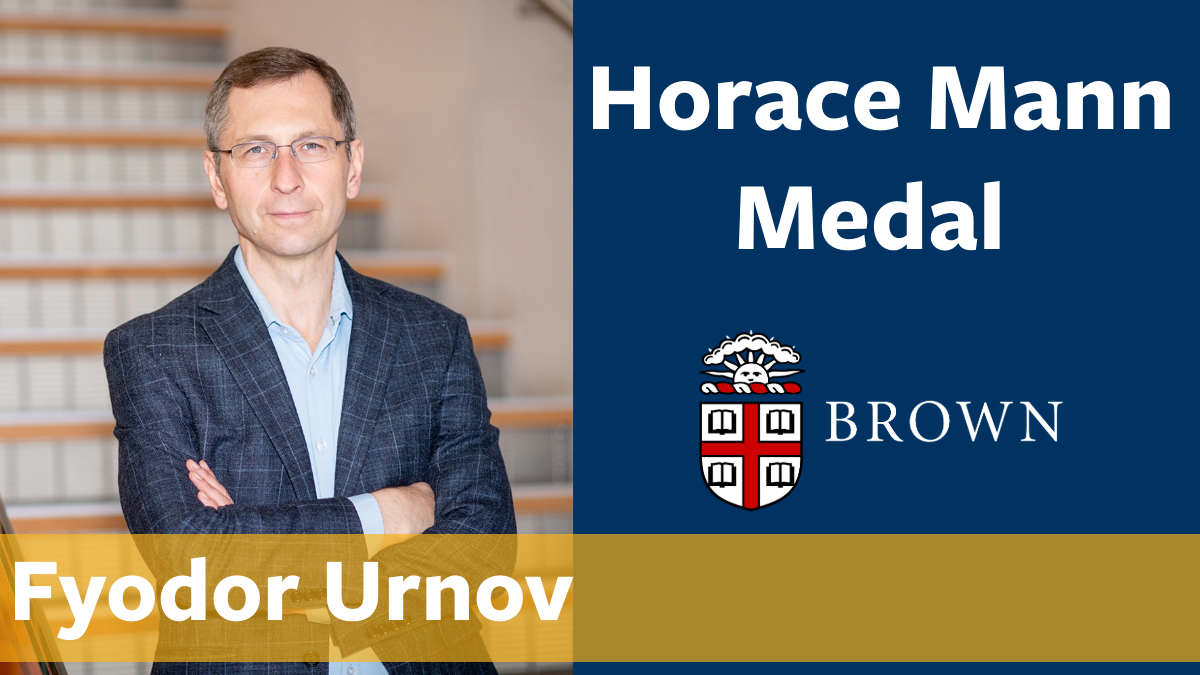 Professor of Molecular Therapeutics, Fyodor Urnov, was awarded the Horace Mann Medal from Brown University.
Professor of Molecular Therapeutics, Fyodor Urnov, was awarded the Horace Mann Medal from Brown University.
